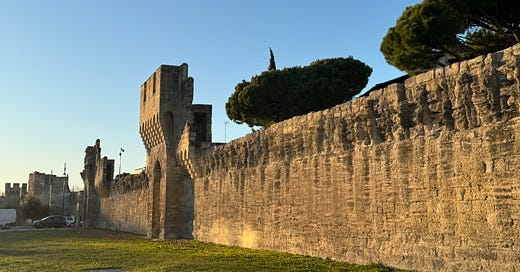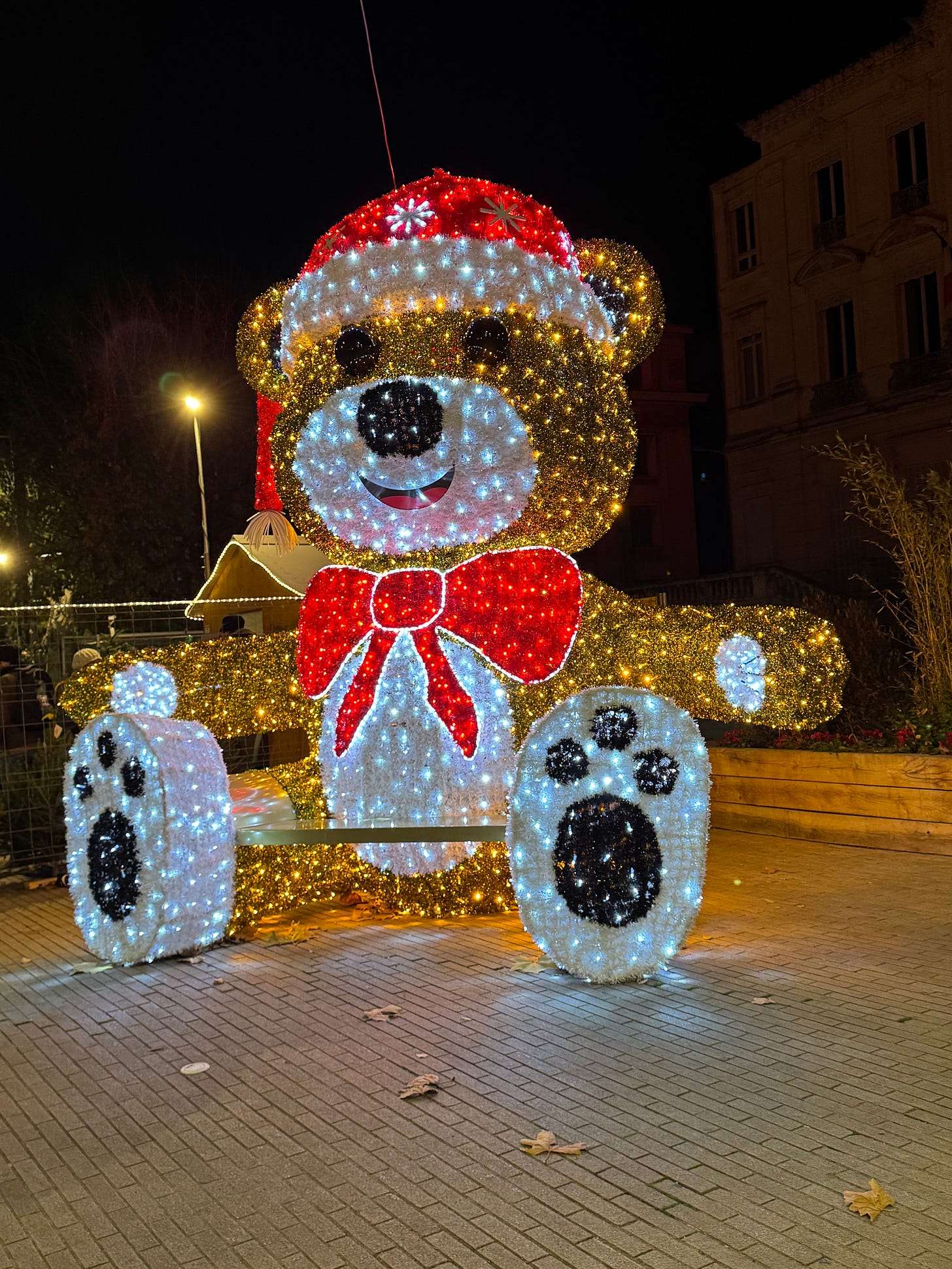I recently did a radio interview with a reporter for France Culture about how the mass rape trial of Gisèle Pelicot is perceived in the United States. It’s a little difficult for me to judge, given that I’m in France, but I have the impression that, while some people are following it closely, a lot of people who normally would are not.
When I bring it up with friends back in the US, for example, a lot of them are unaware of the trial or only know the sketchiest of details. “I’m not really reading the news these days,” one said. “I’m in a news blackout,” another friend told me. Ever since the election, people seem to need to take a step back from current events.
It’s understandable. Between Ukraine, Sudan, Gaza, Yemen, to name just a few hot spots, things have been feeling bleak for a while. And now we seem to be adding insanity into the mix. Martial law in South Korea? Where did that come from? Gang violence in Haiti? Collapsing governments in Germany and now France? It’s overwhelming. Who can keep up with all of it?
And who wants to, really?
I get the impulse to hide. I spent the last month at the Pelicot trial and, aside from the nights when I made Ambien my friend, haven’t had a good night’s sleep since. On the few days I was back in Paris, I binge-watched The Good Place (which turned out to be less mindless than I thought it would be). I barely had the energy to see friends. We all need a mental health break.
Eventually, though, we are going to have to turn our attention back to the real world. We’re not going to have much of a choice. In the US, our rights as women are going to be further eroded. Here in France, the far right will likely continue to make gains on the political front. We can’t hide from the ugliness of the world forever.
But how do we come to terms with it? We had a version of that debate in my book group this weekend. We had read a selection from the book of Psalms, and one of the themes we discussed was the author—or authors—looking to god to make sense of the disorder and violence of the world around him or her. J, who spent much of her career as a war reporter, said that almost unfailingly, the people she interviewed in terrible circumstances said they believed god had a reason for allowing what was happening to them. They found comfort in that notion.
When I think about the state of the world today, when I look squarely at what is happening in so many places, I see little to find solace in. It is, indeed, a dark moment we are living through. But there is plenty of light as well. My boys will both be home for the holidays. That, alone, is enough to fill me with joy.
I’m going to take my holiday break, or as much of it as I can, given that there are still two weeks left in the Pelicot trial. I’ll drink my champagne and celebrate with the people I love, and then I’ll turn back to the painful stuff. And—fair warning—I’m going to be sharing some of it here with you.
Last month, when I was in New York, I met with my literary agent to talk about a memoir project I had been working on. He asked me if anyone was doing a book about Gisèle and her trial and said that if there wasn’t one, I should put together a proposal. I did, and we took it to market a few weeks later. It seems I am writing a book.
Friends have said that it makes sense that I would do that, that sexual assault has become my journalistic lane. And, yes, I guess that is indeed where I find myself—though I wouldn’t say it’s by choice. When, a few years ago, I was asked to co-write a book about Trump and women, my initial impulse was to say no. But, as I’ve talked and written about in the past, I had been reading Ta-Nehisi Coates and thinking about complicity. Once the book was suggested to me, I felt that not doing it would make me somehow complicit in the system of misogyny we all live in. The same is true with the Pelicot book.
So, for the next 10 months or so, I’m going to be exploring both the Pelicots’ story and the issues that the trial has raised, issue that are as pertinent in the US and elsewhere as they are in France. I will be sharing much of that with you here.
I’m also going to be looking for moments to stick my head in the sand, for moments of lightness, fun, and perhaps even silliness. The research for the book will take me to various corners of France; I will do my best to get in some tourist time while I’m on the road and discover different parts of this beautiful country. I will share those moments with you as well.







Wow! Congratulations and thank you for writing the book on Gisèle. It pains me to think so many people are burying the heads in the sand or are too scared to read the details of her trauma but her story and role are far too important. I similarly struggle to unplug from the stream of doom (and feel the consequences on my nervous system!) but I simply don’t believe that looking away is the answer.
🌅